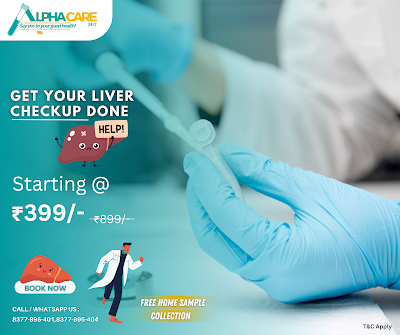what is the function of the liver I How to reduce fatty liver I Is fatty liver dangerous I Can liver problems cause bitter taste in mouth ?
Liver Disease
An organ around the size of a football is the liver. On the
right side of your abdomen, it is located immediately below your ribs. The
liver is crucial for both food digestion and detoxifying your body of harmful
toxins.
Liver disease may run in families (genetic). Viruses, alcohol use, and obesity are just a few examples of the many variables that can harm the liver and result in liver disorders.
Cirrhosis, which can cause liver failure and be fatal, is a disorder that develops over time as a result of liver damage conditions. But early intervention can offer the liver.
Symptoms of liver disease !
1.Liver disorders displaying healthy and unhealthy livers
2.Liver problems
There aren't usually obvious symptoms and indicators of
liver disease. If liver disease symptoms do appear, they may include:
2.Swelling and pain in the abdomen
3.Edoema in the ankles and legs
4.Skin itch
5.Dark-colored urine
6.Light-colored stool
7.Continual tiredness
8.Nausea or diarrhoea
9.Reduced appetite
10.Propensity for bruising easily
Whenever to visit a doctor
If you are concerned about any persistent signs or symptoms, schedule a visit with your doctor. If your abdominal discomfort is so intense that you are unable to remain still, you should seek immediate medical assistance.
What are causes, symptoms, signs and treatment of liver
Causes
There are various reasons of liver disease.
The liver can become infected by parasites and viruses,
which results in inflammation and decreased liver function. The viruses that
harm the liver can be transmitted through blood or semen, tainted food or
water, or direct contact with an infected individual. Hepatitis viruses, such
as the following, are the most prevalent causes of liver infection:
Influenza A
Hepatitis B
Hepatitis C
Immune system dysfunction
Your liver may be impacted by autoimmune diseases, which
occur when your immune system assaults particular body organs. Various
autoimmune liver conditions include:
1.Hepatitis auto-immune
2.Biliary cholangitis primary
3.First-stage sclerosing cholangitis
If you are concerned about any persistent signs or symptoms,
schedule a visit with your doctor.
Genetics
The buildup of numerous substances in your liver can result
in liver disease if you have a faulty gene that you either received from one of
your parents or both of them. genetic hepatic conditions comprise:
1.Hemochromatosis
2.Wilson's illness
3.A lack of alpha-1 antitrypsin
4.Growths such as cancer
Examples comprise:
2.Biliary duct cancer
3.Liver tumour
Other typical causes of liver disease are:
2.A buildup of fat in the liver (nonalcoholic fatty liver
disease)
3.Certain over-the-counter or prescription drugs
4.A few herbal ingredients
Risk Elements
You may be more vulnerable to developing liver disease if
you have:
2.Obesity
3.Diabetes Type 2
4.Body art or piercings
5.Drug injection using sharing needles
6.Transfusion of blood before 1992
7.Exposure to bodily fluids and blood of others
8.Unrestricted sex
9.Exposure to certain poisons or substances
10.An inheritance of liver illness
Visit
Complications
Depending on the root of your liver issues, there are
several liver disease complications. Untreated liver disease may develop into
liver failure, a condition that poses a serious risk to life.
Prevention
To stop liver illness:
Consume alcohol sparingly. That entails up to one drink per
day for women and up to two drinks per day for males for healthy individuals.
More than eight drinks per week for women and more than 15 drinks per week for
males is considered heavy or high-risk drinking.
Avert dangerous activity. When having sex, use a condom. If
you decide to get a tattoo or have your body pierced, be picky about the shop's
cleanliness and safety. If you use illegal intravenous drugs, get treatment. If
you inject drugs, don't share needles.
Obtain a vaccine. Consult your doctor about receiving the
hepatitis A and B vaccines if you have a higher chance of developing hepatitis
or if you have already had any type of the virus.
Take drugs as directed. Only take prescription and
over-the-counter medications as directed and only when necessary. Don't combine
booze with prescription drugs. Before combining herbal supplements with
prescription or over-the-counter medications, consult your doctor.
Keep your distance from other people's bodily fluids and
blood. Accidental needle jabs and poor handling of blood or bodily fluids can
transmit hepatitis viruses.
Maintain food safety. Before consuming food or preparing it,
fully wash your hands. Use bottled water when visiting a developing nation,
wash your hands frequently, and brush your teeth.
Be careful when using aerosol sprays. Wear a mask and use
these materials in an area that is well-ventilated when applying paint,
insecticides, fungicides, or other hazardous substances. Always adhere to the
manufacturer's guidelines.
Keep your skin safe. Wear gloves, long sleeves, a hat, and a
mask when using insecticides and other hazardous chemicals to prevent chemical
absorption through your skin.
keep a healthy weight. Non-alcoholic fatty liver disease can
result from obesity.
To get Your Liver Check Done You can Connect with us @ www.alphacare247.in
Or Call us @ 8377895404,8377895401 to book an appointment for Liver Test.



Comments
Post a Comment